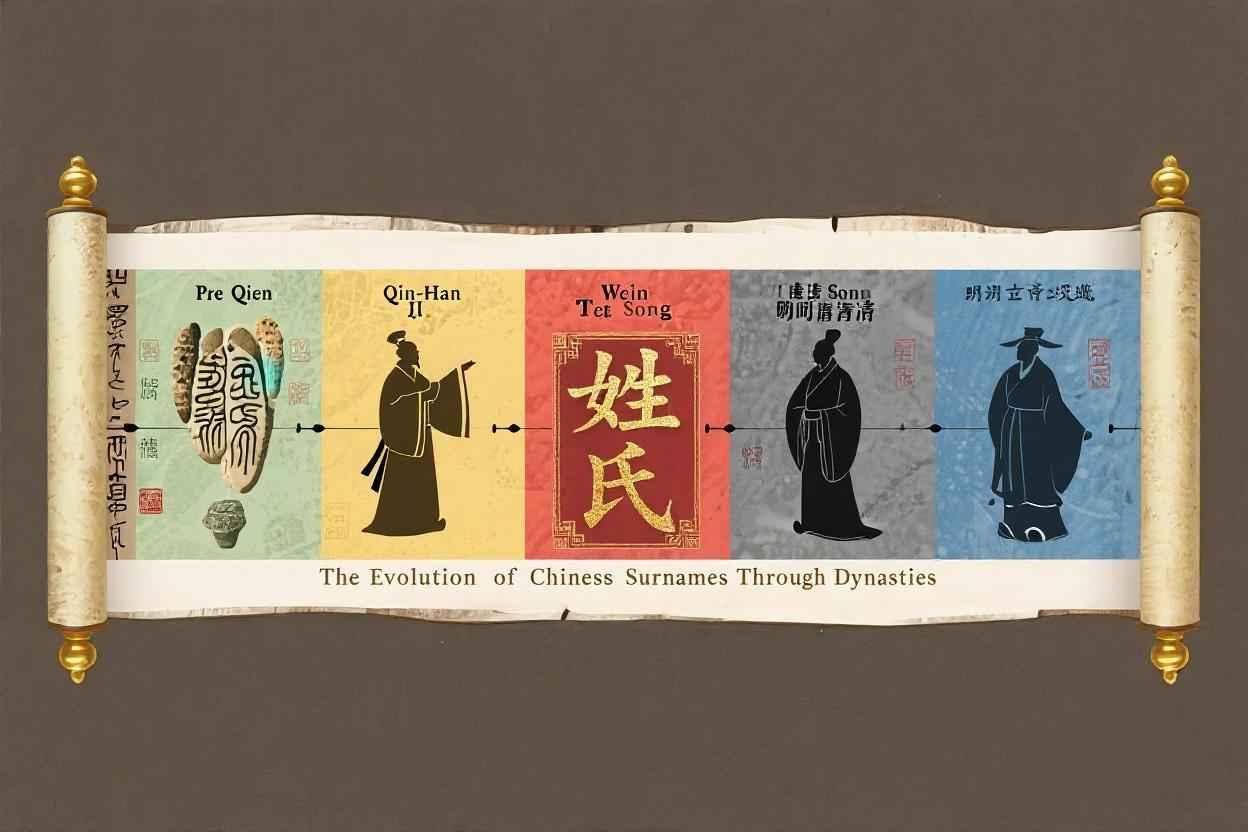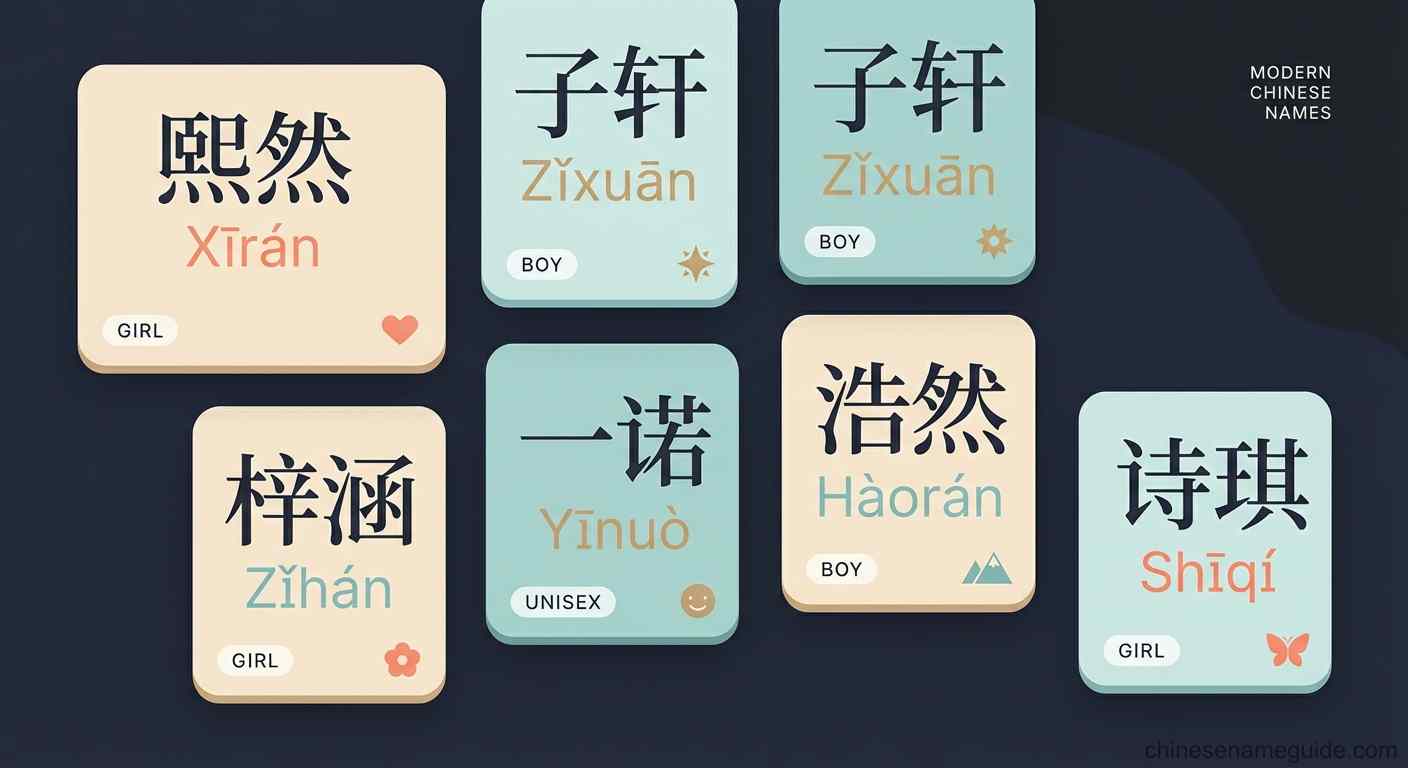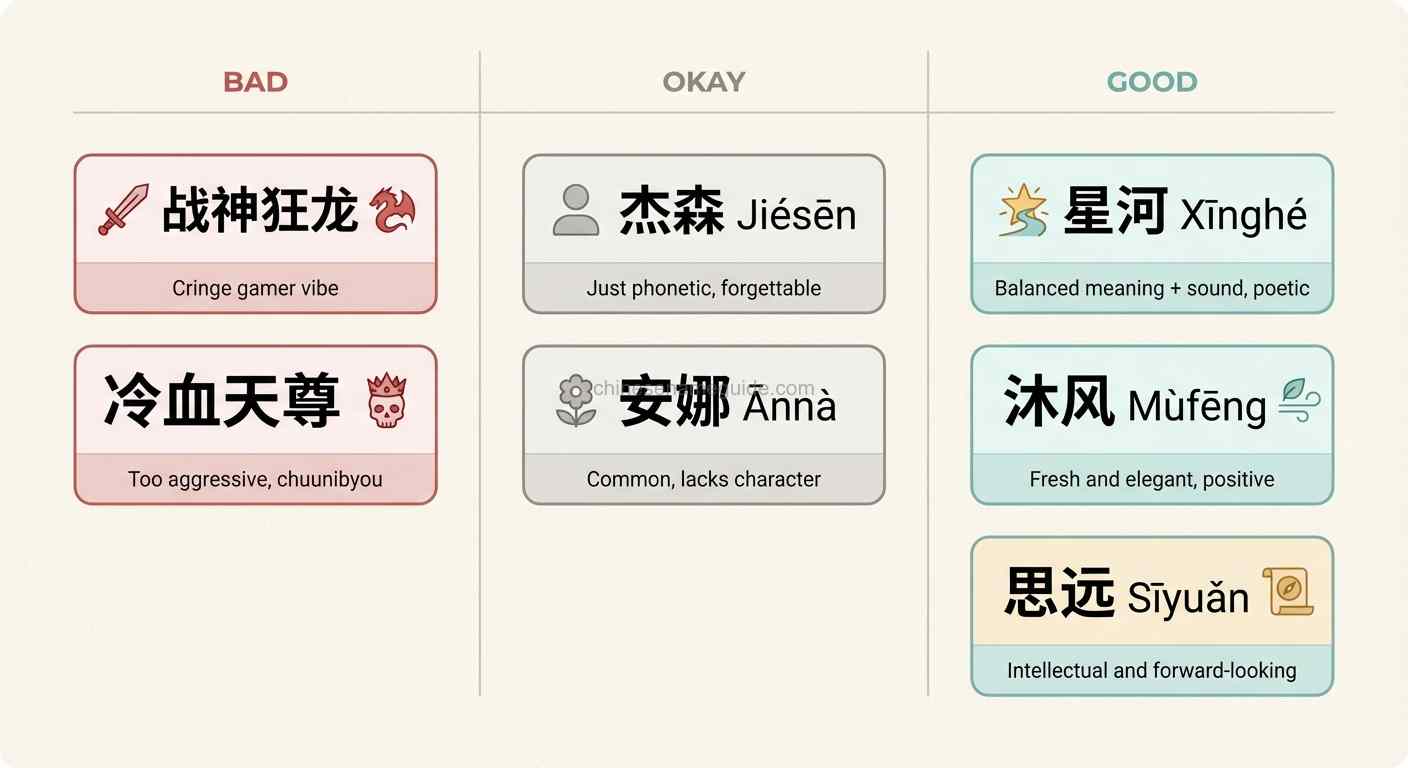
The Evolution of Chinese Surnames Through Dynasties
Explore how Chinese family names have transformed across different historical periods, from ancient tribal names to modern standardized surnames.
Chinese surnames (姓氏, xìngshì) represent one of the world's oldest continuous naming traditions, with some family names tracing their origins back over 4,000 years. Understanding the evolution of Chinese surnames provides fascinating insights into Chinese history, culture, and social development.
Ancient Origins: The Birth of Chinese Surnames
Pre-Qin Dynasty (Before 221 BCE)
The earliest Chinese surnames emerged during the matriarchal society period, where children took their mother's clan name. The character 姓 (xìng) itself contains the radical 女 (nǚ, meaning "woman"), reflecting these ancient matrilineal traditions.
Key characteristics of ancient surnames:
- Derived from tribal or clan names
- Often related to geographical locations
- Connected to totemic animals or natural phenomena
- Indicated social status and lineage
The Eight Ancient Surnames (上古八大姓)
Historical records identify eight primary ancient surnames that formed the foundation of Chinese naming:
- 姬 (Jī) - Associated with the Zhou Dynasty royal family
- 姜 (Jiāng) - Connected to the legendary Emperor Yan
- 姒 (Sì) - Linked to the Xia Dynasty
- 嬴 (Yíng) - Associated with the Qin Dynasty
- 妘 (Yún) - Connected to ancient tribal groups
- 妫 (Guī) - Linked to the legendary Emperor Shun
- 姚 (Yáo) - Associated with ancient tribal confederations
- 妊 (Rèn) - Connected to early Chinese civilization
Imperial Transformations: Qin to Qing Dynasties
Qin Dynasty Standardization (221-206 BCE)
Emperor Qin Shi Huang's unification efforts extended to surname standardization:
- Simplified complex clan naming systems
- Established consistent character usage
- Created administrative records of family names
- Promoted social mobility through merit-based systems
Han Dynasty Expansion (206 BCE - 220 CE)
The Han Dynasty saw significant surname development:
- Population growth led to surname diversification
- Geographic expansion introduced regional naming variations
- Cultural exchange with neighboring peoples added new surnames
- Administrative needs required systematic family registration
Tang Dynasty Golden Age (618-907 CE)
The cosmopolitan Tang Dynasty brought unprecedented surname diversity:
- International influence from Silk Road trade
- Foreign surnames adapted into Chinese characters
- Cultural fusion created hybrid naming traditions
- Literary influence from poetry and classical texts
Modern Era: Republic to People's Republic
Republican Period Changes (1912-1949)
The fall of imperial China brought surname modernization:
- Simplified registration systems
- Romanization efforts for international communication
- Gender equality movements affecting naming traditions
- Educational reforms promoting literacy and standardization
Contemporary Developments (1949-Present)
Modern China has seen continued surname evolution:
- Simplified characters adoption in mainland China
- Computer input methods affecting character usage
- Globalization influence on naming preferences
- One-child policy impact on surname continuation
Regional Variations and Dialects
Northern vs. Southern Traditions
Chinese surname pronunciation and usage vary significantly across regions:
Northern Characteristics:
- Mandarin-based pronunciations
- Influence from Mongol and Manchu periods
- Simplified character preferences
- Urban modernization effects
Southern Characteristics:
- Preserved ancient pronunciations
- Cantonese, Hokkien, and other dialect influences
- Traditional character retention
- Overseas Chinese community connections
Overseas Chinese Communities
Chinese diaspora communities have developed unique surname adaptations:
- Romanization systems (Wade-Giles, Pinyin, local adaptations)
- Translation practices for official documents
- Cultural preservation efforts in naming traditions
- Integration challenges with local naming customs
Cultural Significance and Social Impact
Genealogical Traditions
Chinese surnames carry deep cultural meaning:
- Family trees (族谱, zúpǔ) document lineage connections
- Ancestral worship practices honor surname origins
- Marriage customs traditionally avoid same-surname unions
- Social networks often form around surname associations
Modern Challenges and Adaptations
Contemporary Chinese society faces surname-related challenges:
- Gender equality in surname inheritance
- International marriage naming decisions
- Professional identity in global contexts
- Digital age character input and display issues
The Future of Chinese Surnames
Technological Influences
Modern technology is shaping surname evolution:
- Digital input methods affecting character selection
- Social media platforms influencing name presentation
- International communication driving romanization standards
- AI translation tools improving cross-cultural understanding
Cultural Preservation Efforts
Organizations and institutions work to preserve surname heritage:
- Academic research into surname origins and meanings
- Digital archives documenting family histories
- Cultural education programs for younger generations
- International exchanges promoting Chinese naming culture
Conclusion
The evolution of Chinese surnames reflects the broader story of Chinese civilization itself. From ancient tribal identifiers to modern digital-age adaptations, surnames continue to serve as bridges between past and present, connecting individuals to their cultural heritage while adapting to contemporary global realities.
Understanding this evolution helps us appreciate not just the complexity of Chinese naming traditions, but also their remarkable resilience and adaptability across millennia of social, political, and technological change.
For those interested in exploring their own Chinese name or understanding Chinese naming culture more deeply, this historical perspective provides essential context for making informed and culturally respectful choices.
Related Articles

How to Pronounce Chinese Names with Pinyin: A Practical Guide for Non-Native Speakers
A practical guide to pronouncing Chinese names written in pinyin, covering name structure, pinyin basics, common patterns, and practice tips for non-native speakers.

Modern Chinese Names: What Kids Are Actually Called Now
Forget Li Ming and Wang Wei. A ground-level look at what Chinese kids are really named today, what those names signal, and how to sound modern without sounding ridiculous.

Why Most Chinese Name Generators Are Dangerous (Don't Get a Tattoo Yet!)
Before you tattoo a ‘cool Chinese name’ or launch a brand with it, read this. A brutally honest look at how most Chinese name generators actually work — and why they can quietly ruin your skin, your brand, or your reputation.